
Join us for an evening with the Buddhist Digital Resource Center (BDRC) exploring the evolution of Buddhist wisdom and knowledge as it is translated and transformed between cultures and across time. The event will include a talk by renowned scholar Donald S. Lopez, a dramatic Buddhist reading by actor and writer Michael Imperioli, and musical performances from guest artists; this evening promises to be a celebration on multiple levels.
Professor Lopez will discuss how the translation of Buddhist texts has altered cultures over the centuries and around the globe, focusing on Tibetan texts and the legendary efforts of E. Gene Smith to bring about that transformation. Michael Imperioli will follow with a reading that dramatizes the transformative power of the dharma through translation and the arts.
The galleries will be open before and after the event. This evening will be one of the last opportunities to visit the Museum at 150 West 17th Street before it closes on October 6, 2024, and transforms into a global museum without walls.
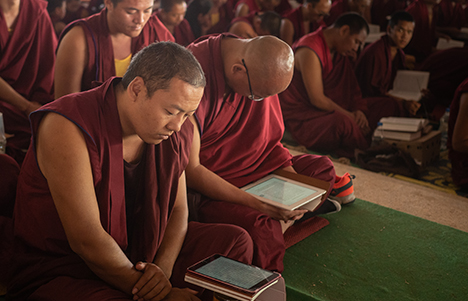
The 25th Anniversary of the Buddhist Digital Resource Center
When the Rubin Museum opened its doors 20 years ago, the Himalayan and Tibetan polymath Gene Smith (1936–2010) played a pivotal role in shaping our vision and scholarship, and his organization, the Buddhist Digital Resource Center, was headquartered at the neighboring Rubin Foundation for a decade. Gene Smith was best known for his 50 years of efforts to reprint and digitize Tibetan Buddhist texts, and BDRC is now the largest digital library of Buddhist texts in the world. The Rubin’s comprehensive collection of Himalayan art saw itself mirrored in BDRC’s library of Buddhist texts from every tradition, and both institutions are dedicated to public access and contemporary forms of engagement. Auspiciously, the Rubin Museum and BDRC are both celebrating anniversaries and embarking on transformative reinventions this fall.
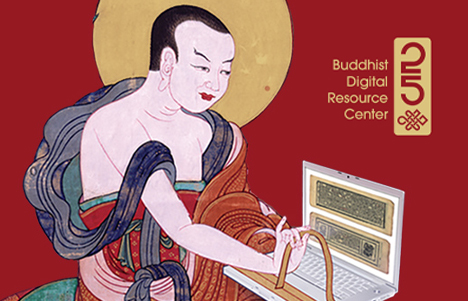
Donald S. Lopez, is the Arthur E. Link Distinguished University Professor of Buddhist and Tibetan Studies at the University of Michigan. He is the author, editor, or translator of a number of works, including Prisoners of Shangri-La, The Madman’s Middle Way, Buddhist Scriptures, and The Princeton Dictionary of Buddhism (with Robert Buswell). In 2000 he was elected to the American Academy of Arts and Sciences.
Michael Imperioli is a New York City-based actor, writer, and musician. In addition to his Emmy-award winning role in HBO’s critically acclaimed Mafia chronicle The Sopranos, he has acted in films by Martin Scorsese, Walter Hill, Hal Hartley, Abel Ferrara, the Hughes brothers, Paul Auster, and Spike Lee, with whom he also co-scripted and co-produced the feature, Summer of Sam. Imperioli is the guitarist and vocalist for the band Zopa and has served as artistic director of Studio Dante, an off-Broadway theater company. He is the New York Times best-selling author of Woke Up This Morning: The Definitive Oral History of the Sopranos (with Steve Schirripa), as well as the novel The Perfume Burned His Eyes, which he is currently adapting as a screenplay. A longtime student of Garchen Rinpoche, he serves on the board of the nonprofit The Pureland Project, and recently recorded the audiobook of Dzongsar Khyentse Rinpoche’s Living is Dying.
Lead support for the Rubin Museum is provided by Bob and Lois Baylis, Barbara Bowman, E. Rhodes and Leona B. Carpenter Foundation, Dharma Joy Foundation, Noah P. Dorsky, Fred Eychaner, Christopher J. Fussner, Agnes Gund, The Robert H. N. Ho Family Foundation Global, the Estate of Lisina M. Hoch, Henry Luce Foundation, The Pierre and Tana Matisse Foundation, Mellon Foundation, Matt and Ann Nimetz, The Randleigh Foundation Trust, Shelley and Donald Rubin, Tiger Baron Foundation, and Ellen Bayard Weedon Foundation.
General operating support of the Rubin Museum of Art is provided by the Milton and Sally Avery Arts Foundation, Alex J. Ettl Foundation, Daphne Hoch Cunningham and John Cunningham, Anne E. Delaney, Dalio Philanthropies, Dan Gimbel of NEPC, LLC, The Prospect Hill Foundation, Basha Frost Rubin and Scott Grinsell, Namita and Arun Saraf, Linda Schejola, Eric and Alexandra Schoenberg, Eileen Caulfield Schwab, Jesse Smith and Annice Kenan, Tsherin Sherpa, Tong-Tong Zhu and Jianing Liu, with generous donations from the Museum’s Board of Trustees, individual donors and members, and corporate and foundation supporters.
This program is supported, in part, by public funds from the New York City Department of Cultural Affairs, in partnership with the City Council.
The Rubin Museum’s programs are made possible by the New York State Council on the Arts with the support of the Office of Governor Kathy Hochul and the New York State Legislature.


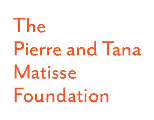


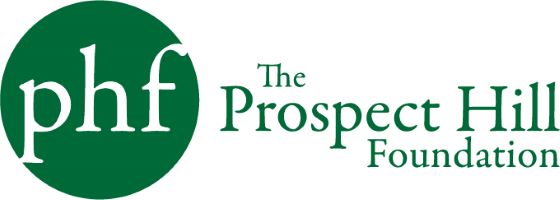


Michael Imperioli’s photo is by Kayla Rocca.
We are thrilled to welcome Rubin members for a special reception in the Art Lounge on Friday, June 21. As a token of our gratitude, join us for an evening of indulgence, including complimentary drinks, passed delectable bites, and a special gift.
Before the event, we welcome you to join us for a talk in the galleries by Reimagine: Himalayan Art Now artist Shushank Shrestha. As part of our Artists on Art talk series, he will share the inspiration and experiences behind his work. Please note that this talk requires a separate registration.
We eagerly anticipate celebrating with you on this special evening. Please RSVP by sending an email to membership@rubinmuseum.org by Wednesday, June 19.
Reimagine: Himalayan Art Now is supported by Bob and Lois Baylis, Daphne Hoch Cunningham and John Cunningham, Noah P. Dorsky, Mimi Gardner Gates, Fred Eychaner, Jacques and Natasha Gelman Foundation, Dan Gimbel of NEPC, LLC, Agnes Gund, New York Life, Matt and Ann Nimetz, Namita and Arun Saraf, The Prospect Hill Foundation, Eileen Caulfield Schwab, Taipei Cultural Center in New York, and UOVO.
This program is supported, in part, by public funds from the New York City Department of Cultural Affairs, in partnership with the City Council.
The Rubin Museum’s programs are made possible by the New York State Council on the Arts with the support of the Office of Governor Kathy Hochul and the New York State Legislature.
This project is supported in part by the National Endowment for the Arts.

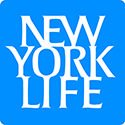
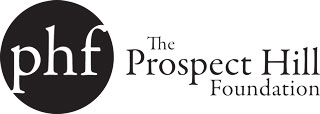



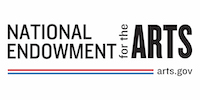
Spend your summer Fridays exploring the Rubin’s Museum-wide exhibition Reimagine: Himalayan Art Now from the perspectives of a select group of participating artists. Each talk will feature a different artist who will share the inspiration and experiences behind their work in the galleries. The artist will also engage with other artworks in the exhibition that captured their interest. There will be time allotted for audience questions. Ticket holders will meet at 6:00 PM at the base of the spiral staircase.
This week’s Artists on Art talk will be led by Tenzin Mingyur Paldron.
ABOUT THE ARTIST
Tenzin Mingyur Paldron (he/they)
b. 1984, New Delhi, India; lives and works in New York, NY
Tenzin Mingyur Paldron has a PhD in rhetoric from UC Berkeley and wrote the dissertation Tibet, China, and the United States: Self-immolation and the limits of understanding (2021). The artist later collaborated with Soojin Chang on the film Virtue and the Remaking of Suffering, which features Paldron’s analysis and commentary on a historic letter sent by peace activist Thich Nhat Hanh to civil rights leader Dr. Martin Luther King Jr. in 1965.
Through art and dialogue, Tenzin Mingyur Paldron has worked to elevate LGBTQIA+ perspectives and address issues of sexual violence in the Tibetan diaspora. The artist is developing the Tibet Learning Series which is preceded by the online archive Tibet x Decolonial Atlas and his talk series Truth at the Margins on racism and disinformation in the media regarding Tibetans. They are also writing a research memoir entitled Transgender Road Diaries: A Tibetan Adventure.
Tenzin Mingyur Paldron’s new work Power, Masculinity, and Mindfulness comprises four films and videos that source exchanges between the artist and his father to engage wider world issues and Tibetan realities. Through them the artist invites viewers to contemplate their own nuanced perspectives, fallibilities, and resources.
paldron.com / @doctenzin
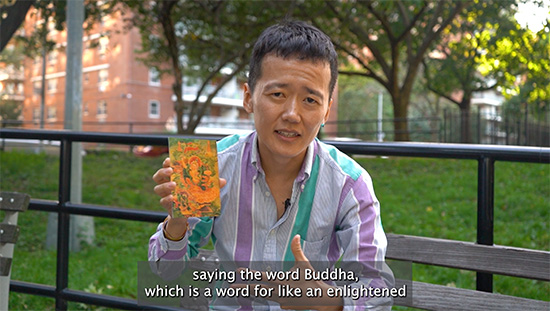
Reimagine: Himalayan Art Now is supported by Bob and Lois Baylis, Daphne Hoch Cunningham and John Cunningham, Noah P. Dorsky, Mimi Gardner Gates, Fred Eychaner, Jacques and Natasha Gelman Foundation, Dan Gimbel of NEPC, LLC, Agnes Gund, New York Life, Matt and Ann Nimetz, Namita and Arun Saraf, The Prospect Hill Foundation, Eileen Caulfield Schwab, Taipei Cultural Center in New York, and UOVO.
This program is supported, in part, by public funds from the New York City Department of Cultural Affairs, in partnership with the City Council.
The Rubin Museum’s programs are made possible by the New York State Council on the Arts with the support of the Office of Governor Kathy Hochul and the New York State Legislature.
This project is supported in part by the National Endowment for the Arts.


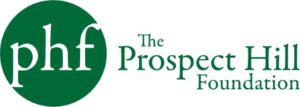
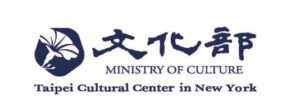


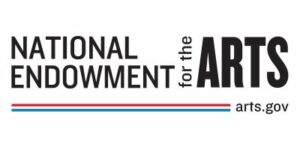
Spend your summer Fridays exploring the Rubin’s Museum-wide exhibition Reimagine: Himalayan Art Now from the perspectives of a select group of participating artists. Each talk will feature a different artist who will share the inspiration and experiences behind their work in the galleries. The artist will also engage with other artworks in the exhibition that captured their interest. There will be time allotted for audience questions. Ticket holders will meet at 6:00 PM at the base of the spiral staircase.
This week’s Artist on Art talk will be led by Kunsang Gyatso.
ABOUT THE ARTIST
Kunsang Gyatso (he/him)
b. 1988, Helambu, Nepal; lives and works in New York, NY
Kunsang Gyatso’s art highlights his concerns regarding his identity as tied to his birthplace of Hyolmo, Nepal. His experiences in the diaspora following his immigration to the United States in his early twenties feature prominently in his work. The artist seeks to negotiate his place in the world by uncovering lived and imagined realities, at times dwelling in the personal through lived experiences, memories, and dreams, and at others, engaging with traditional imagery, systems of knowledge, and practices. He is currently based in Queens, NY.
kunsanggyatso.com / @kunsang
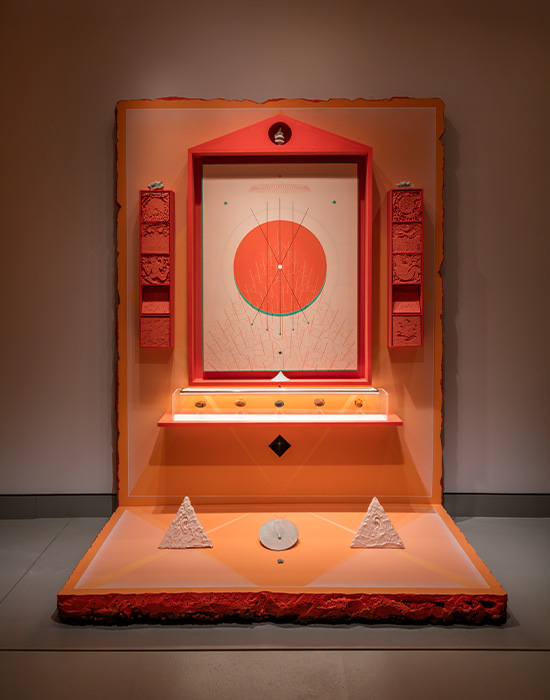
Reimagine: Himalayan Art Now is supported by Bob and Lois Baylis, Daphne Hoch Cunningham and John Cunningham, Noah P. Dorsky, Mimi Gardner Gates, Fred Eychaner, Jacques and Natasha Gelman Foundation, Dan Gimbel of NEPC, LLC, Agnes Gund, New York Life, Matt and Ann Nimetz, Namita and Arun Saraf, The Prospect Hill Foundation, Eileen Caulfield Schwab, Taipei Cultural Center in New York, and UOVO.
This program is supported, in part, by public funds from the New York City Department of Cultural Affairs, in partnership with the City Council.
The Rubin Museum’s programs are made possible by the New York State Council on the Arts with the support of the Office of Governor Kathy Hochul and the New York State Legislature.
This project is supported in part by the National Endowment for the Arts.







Spend your summer Fridays exploring the Rubin’s Museum-wide exhibition Reimagine: Himalayan Art Now from the perspectives of a select group of participating artists. Each talk will feature a different artist who will share the inspiration and experiences behind their work in the galleries. The artist will also engage with other artworks in the exhibition that captured their interest. There will be time allotted for audience questions. Ticket holders will meet at 6:00 PM at the base of the spiral staircase.
This week’s Artists on Art talk will be led by IMAGINE (a.k.a. Sneha Shrestha).
ABOUT THE ARTIST
IMAGINE (a.k.a. Sneha Shrestha) (she/her)
b. 1987, Kathmandu, Nepal; lives in Boston, MA; works in Kathmandu, Nepal, and Boston, MA
IMAGINE (a.k.a. Sneha Shrestha) is a Nepalese artist who incorporates her native language and meshes the aesthetics of Sanskrit scriptures with graffiti influences. She has shown her meditative works in several exhibitions, commissioned works and public walls around the world, from Kathmandu to Boston.
IMAGINE’s painting Home416 was recently acquired into the permanent collection of Museum of Fine Arts, Boston, making her the first contemporary Nepalese artist to ever be acquired in the history of the MFA. Her first major solo show Sneha Shrestha: Ritual and Devotion is on view at the Cantor Art Gallery at the Prior Arts Center.
She has shown work at the Isabella Stewart Gardner Museum and the Museum of Fine Arts, Boston. She was recognized by WBUR as one of the 25 millennial artists of color impacting Boston and recognized as Outstanding Artist of the Year by the Center for Arts at the Armory. IMAGINE’s work is held in the private collections of Facebook, Google, and Fidelity Investments. She received her master’s from Harvard University, is an educator and social entrepreneur. She passionately supports Asian art by working as the arts program manager at the South Asia Institute at Harvard.
imagine876.com / @imagine876
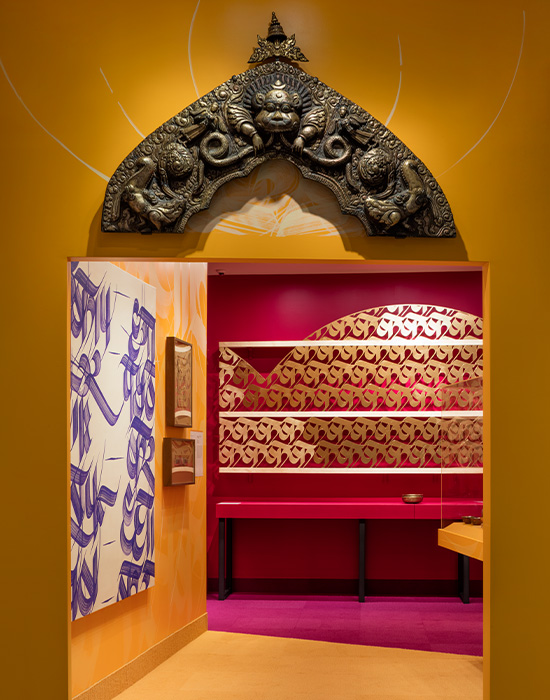
Reimagine: Himalayan Art Now is supported by Bob and Lois Baylis, Daphne Hoch Cunningham and John Cunningham, Noah P. Dorsky, Mimi Gardner Gates, Fred Eychaner, Jacques and Natasha Gelman Foundation, Dan Gimbel of NEPC, LLC, Agnes Gund, New York Life, Matt and Ann Nimetz, Namita and Arun Saraf, The Prospect Hill Foundation, Eileen Caulfield Schwab, Taipei Cultural Center in New York, and UOVO.
This program is supported, in part, by public funds from the New York City Department of Cultural Affairs, in partnership with the City Council.
The Rubin Museum’s programs are made possible by the New York State Council on the Arts with the support of the Office of Governor Kathy Hochul and the New York State Legislature.
This project is supported in part by the National Endowment for the Arts.







Spend your summer Fridays exploring the Rubin’s Museum-wide exhibition Reimagine: Himalayan Art Now from the perspectives of a select group of participating artists. Each talk will feature a different artist who will share the inspiration and experiences behind their work in the galleries. The artist will also engage with other artworks in the exhibition that captured their interest. There will be time allotted for audience questions. Ticket holders will meet at 6:00 PM at the base of the spiral staircase.
This week’s Artists on Art talk will be led by Bidhata K C.
ABOUT THE ARTIST
Bidhata K C (she/her)
b. 1978, Lalitpur, Nepal; lives and works in Lalitpur, Nepal
Bidhata K C is a contemporary artist based in Nepal. Through installations, paintings, and prints, she primarily investigates the issues of identity, material culture, and the relations between the old and the new in our daily lives. Bidhata K C finds inspiration in the centuries-old artistic traditions of her native country to create striking images of contemporary narratives.
In 2011 her painting Marginalized Identity was recognized with the Special Mention Award at the National Fine Art Exhibition in Nepal. She was represented by the Nepal Art Council in the India Art Fair 2016, and she was one of the 15 commissioned artists for the 2017 Kathmandu Triennale. In 2018 Bidhata K C was honored as the Artist of the Year, 100 Most Influential Women of Nepal and was a recipient of the Australian Himalayan Foundation Art Award. In 2022 she was selected by the U.S. Department of State to attend the Social Change Through the Arts initiative under the International Visitor Leadership Program.
bidhatakc.com / @bidhatakc
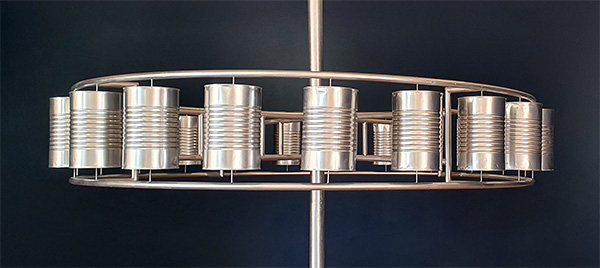
Reimagine: Himalayan Art Now is supported by Bob and Lois Baylis, Daphne Hoch Cunningham and John Cunningham, Noah P. Dorsky, Mimi Gardner Gates, Fred Eychaner, Jacques and Natasha Gelman Foundation, Dan Gimbel of NEPC, LLC, Agnes Gund, New York Life, Matt and Ann Nimetz, Namita and Arun Saraf, The Prospect Hill Foundation, Eileen Caulfield Schwab, Taipei Cultural Center in New York, and UOVO.
This program is supported, in part, by public funds from the New York City Department of Cultural Affairs, in partnership with the City Council.
The Rubin Museum’s programs are made possible by the New York State Council on the Arts with the support of the Office of Governor Kathy Hochul and the New York State Legislature.
This project is supported in part by the National Endowment for the Arts.







Spend your summer Fridays exploring the Rubin’s Museum-wide exhibition Reimagine: Himalayan Art Now from the perspectives of a select group of participating artists. Each talk will feature a different artist who will share the inspiration and experiences behind their work in the galleries. The artist will also engage with other artworks in the exhibition that captured their interest. There will be time allotted for audience questions. Ticket holders will meet at 6:00 PM at the base of the spiral staircase.
This week’s Artists on Art talk will be led by Shushank Shrestha.
ABOUT THE ARTIST
Shushank Shrestha (he/him)
b. 1993, Kathmandu, Nepal; lives and works in Marion, MA
Shushank Shrestha is a ceramic artist from Kathmandu, Nepal, who engages with modern culture through the lens of traditional Nepalese art. Cartoons and animated movies have been a source of inspiration and fantasy for the artist. Such imagery transports the viewer into a magical world, free from everyday stresses, and often conveys emotions or ideas that may be difficult to express through other means.
Shushank Shrestha’s characters reflect his personal journey of transformation and self-discovery, centered on the question of what it means to be human today. He intends to help people revisit the positivity of childhood through his art.
Shushank Shrestha has a MFA in ceramic arts from New York State College of Ceramics at Alfred University. He received his BFA from Kathmandu University School of Arts in 2016, and his work has been exhibited in Nepal, China, France, and the US.
@shushank17
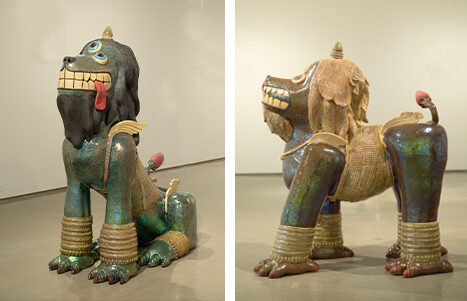
Shushank Shrestha; Female Guardian Dog; 2023; ceramic, in-glaze lustre; courtesy of the artist

Reimagine: Himalayan Art Now is supported by Bob and Lois Baylis, Daphne Hoch Cunningham and John Cunningham, Noah P. Dorsky, Mimi Gardner Gates, Fred Eychaner, Jacques and Natasha Gelman Foundation, Dan Gimbel of NEPC, LLC, Agnes Gund, New York Life, Matt and Ann Nimetz, Namita and Arun Saraf, The Prospect Hill Foundation, Eileen Caulfield Schwab, Taipei Cultural Center in New York, and UOVO.
This program is supported, in part, by public funds from the New York City Department of Cultural Affairs, in partnership with the City Council.
The Rubin Museum’s programs are made possible by the New York State Council on the Arts with the support of the Office of Governor Kathy Hochul and the New York State Legislature.
This project is supported in part by the National Endowment for the Arts.







Spend your summer Fridays exploring the Rubin’s Museum-wide exhibition Reimagine: Himalayan Art Now from the perspectives of a select group of participating artists. Each talk will feature a different artist who will share the inspiration and experiences behind their work in the galleries. The artist will also engage with other artworks in the exhibition that captured their interest. There will be time allotted for audience questions. Ticket holders will meet at 6:00 PM at the base of the spiral staircase.
This week’s Artist on Art talk will be led by Kabi Raj Lama.
ABOUT THE ARTIST
Kabi Raj Lama (he/him)
b. 1986, Kavrepalanchok, Nepal; lives in Highland Park, NJ; works in Kathmandu, Nepal
Kabi Raj Lama works at the intersection of neuroscience and art. Descended from a line of Buddhist monks in the indigenous Tamang community in Nepal, he grounds his work in the ideals of his community. His personal experiences and interests overlap with notions of impermanence and science.
Kabi Raj Lama graduated from Kathmandu University in 2009, and in 2011 he went to Japan to study printmaking at Meisei University. He is currently based in New York, and is enrolled in the MFA program at Rutgers University. His works have been exhibited at various international galleries, institutes, and museums, including Machida National Print Museum, Tokyo (2014), Ome City Art Museum, Tokyo (2014), Fukushima Biennale, Japan (2016), National Art Gallery, Sofia, Bulgaria (2018), Lakshima Mittal, South Asia Institute of Harvard University (2018), Tianjin Art Museum, China (2019), Nepal Art Now, Welt Museum, Vienna Austria (2019), The Palace Museum, Beijing (2019), and Today Art Museum Beijing (2019).
@kabi_raj_lama_
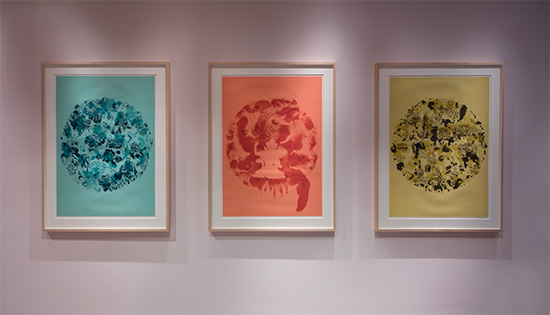
Reimagine: Himalayan Art Now is supported by Bob and Lois Baylis, Daphne Hoch Cunningham and John Cunningham, Noah P. Dorsky, Mimi Gardner Gates, Fred Eychaner, Jacques and Natasha Gelman Foundation, Dan Gimbel of NEPC, LLC, Agnes Gund, New York Life, Matt and Ann Nimetz, Namita and Arun Saraf, The Prospect Hill Foundation, Eileen Caulfield Schwab, Taipei Cultural Center in New York, and UOVO.
This program is supported, in part, by public funds from the New York City Department of Cultural Affairs, in partnership with the City Council.
The Rubin Museum’s programs are made possible by the New York State Council on the Arts with the support of the Office of Governor Kathy Hochul and the New York State Legislature.
This project is supported in part by the National Endowment for the Arts.







Join us in celebrating Vesak and Saga Dawa in collaboration with the Buddhist Council of New York. Vesak and Saga Dawa celebrate Buddha Shakyamuni’s birth, enlightenment, and mahaparinirvana, or passing away. Saga Dawa is the holiest month in the Tibetan Buddhist calendar. The merit of any good deeds performed during this month are said to be multiplied many times over—by as many as a hundred million times.
Each one of us holds the potential to enact change through the teachings of the Buddha. In these critical times, when the world yearns for peace and unity, our gathering is more than a celebration of the Buddha; it’s a call to embody the Buddha’s wisdom through acts of harmony, empathy, and compassion within our community and the wider world.
Hosted by Tashi Chodron, Himalayan programs and communities ambassador at the Rubin, this afternoon of reflection will feature Buddhist teachers from a variety of dharma centers leading chants, prayers, rituals, and dharma talks.
Program Highlights:
- Bathing of the Buddha: A ritual symbolizing purification and renewal, inviting participants to cleanse their minds and spirits.
- Offering Chants and Prayers: A harmonious blend of voices from the Theravada, Mahayana, and Vajrayana traditions, fostering a sense of communal sanctity and peace.
- Short Dharma Talks: Insights from diverse traditions, offering perspectives on how to weave the Buddha’s teachings into the fabric of our daily lives for the betterment of all beings.
The Rubin is becoming a global museum and closing the building on 17th Street on October 6, 2024. As we gather, let us honor this space by filling it with the spirit of unity and the resolve to make a difference.
About Buddhist Council of New York
The Buddhist Council of New York, founded in 1985, is an association of Buddhist Temples and organizations whose mission is to foster dialogue, cooperation and unity within the Buddhist community in the New York City area, as well as to organize events each year such as Meditate NYC; Vesak, commemorating the birth, enlightenment, and death of Shakyamuni Buddha, and the Buddhist Forum.
Major support for Himalayan Heritage is provided by The Frederick P. Lenz Foundation for American Buddhism. Special Support is provided by Heather B. Henson.
The Rubin Museum’s programs are made possible by the New York State Council on the Arts with the support of the Office of Governor Kathy Hochul and the New York State Legislature.

Image Credit
Buddha Shakyamuni and Scenes from His Life; Tsang Province, Central Tibet; second half of the 14th century; pigments on cloth; Rubin Museum of Art; C2011.3 (HAR 77032)
Helen Tworkov’s life was forever changed when she saw the iconic photo of Thich Quang Duc, the Vietnamese monk who, while seated in meditation, set himself on fire to protest his government’s crackdown on the Buddhist clergy. Tworkov realized that radically different states of mind truly existed and were worth exploring. At the age of twenty-two, she set off for Japan, then traveled through Cambodia, India, and eventually to Tibetan refugee camps in Nepal. Her new memoir Lotus Girl: My Life at the Crossroads of Buddhism and America is the story of this journey.
Join us for a conversation on the Rubin stage with the author and Tricycle: The Buddhist Review founder Helen Tworkov and psychiatrist Mark Epstein about the book and the relationship between Buddhist wisdom and American values.
Premium tickets include a hardcover copy of the book. A book signing will follow the program.
This program is presented in association with Tricycle: A Buddhist Review.
About the Book
Set against the arresting cultural backdrop of the sixties and their legacy, this intimate self-portrait depicts Tworkov’s search for a true home as she interacts with renowned artists and spiritual luminaries including the Dalai Lama, Pema Chödrön, Joseph Goldstein, Bernie Glassman, Charles Mingus, Elizabeth Murray and Richard Serra.
Interweaving experience, research, and revelation, Helen Tworkov explores the relationship between Buddhist wisdom and American values, presenting a wholly unique look at the developing landscape of Buddhism in the West. Lotus Girl offers insight not only into Tworkov’s own search for the truth, but into the ways each of us can better understand and transform ourselves.
About the Speakers
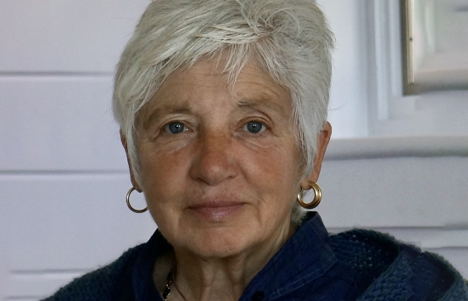
Helen Tworkov is founding editor of Tricycle: The Buddhist Review, the first and only independent Buddhist magazine, and author of Zen in America: Profiles of Five Teachers (North Point Press; 1989). She first encountered Buddhism in Asia in the 1960s and has studied in both the Zen and Tibetan traditions. Since 2006 she has been a student of the Kagyu and Nyingma Tibetan master Yongey Mingyur Rinpoche, and has assisted him in the writing of In Love with the World: A Monk’s Journey Through the Bardos of Living and Dying (Spiegel and Grau; 2019) and Turning Confusion into Clarity: A Guide to the Foundation Practices of Tibetan Buddhism (Shambhala Publications; 2014). This is her first appearance on stage at the Rubin.
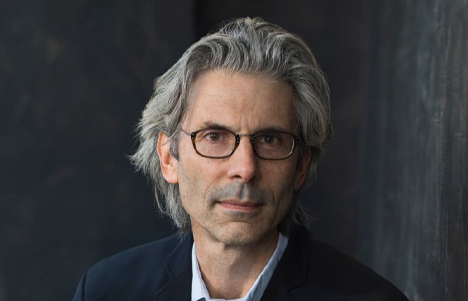
Mark Epstein, MD, is a regular participant in the Rubin’s programs. A highly regarded psychiatrist in private practice in New York City, he is the author of a number of books about the interface of Buddhism and psychotherapy, the most recent of which is Advice Not Given: A Guide to Getting Over Yourself. Other titles include Thoughts without a Thinker, Going to Pieces without Falling Apart, Going on Being, Open to Desire, Psychotherapy without the Self, and The Trauma of Everyday Life. He received his undergraduate and medical degrees from Harvard University and is currently a clinical assistant professor in the postdoctoral program in psychotherapy and psychoanalysis at New York University.
This program is supported in part by the Frederick P. Lenz Foundation for American Buddhism.
Lead support for the Rubin Museum is provided by Bob and Lois Baylis, Barbara Bowman, E. Rhodes and Leona B. Carpenter Foundation, Noah P. Dorsky, Fred Eychaner, Christopher J. Fussner, Agnes Gund, The Robert H. N. Ho Family Foundation Global, the Estate of Lisina M. Hoch, Lilly Endowment, Henry Luce Foundation, The Pierre and Tana Matisse Foundation, Mellon Foundation, Matt and Ann Nimetz, The Randleigh Foundation Trust, Shelley and Donald Rubin, Tiger Baron Foundation, and Ellen Bayard Weedon Foundation.
General operating support of the Rubin Museum of Art is provided by the Milton and Sally Avery Arts Foundation, Daphne Hoch Cunningham and John Cunningham, Anne E. Delaney, Dalio Philanthropies, Janet Gardner, Dan Gimbel of NEPC, Inc., The Prospect Hill Foundation, Basha Rubin and Scott Grinsell, Namita and Arun Saraf, Linda Schejola, Eric and Alexandra Schoenberg, Eileen Caulfield Schwab, Jesse Smith and Annice Kenan, Tsherin Sherpa, Tong-Tong Zhu and Jianing Liu, with generous donations from the Museum’s Board of Trustees, individual donors and members, and corporate and foundation supporters.
This program is supported, in part, by public funds from the New York City Department of Cultural Affairs, in partnership with the City Council.
The Rubin Museum’s programs are made possible by the New York State Council on the Arts with the support of the Office of Governor Kathy Hochul and the New York State Legislature.








Join us for a talk on the Rubin stage with writer and meditation teacher Tracy Cochran to launch her newest book Presence: The Art of Being at Home in Yourself . In Presence Tracy invites us to live fully in the present moment as a revolutionary practice. Vibrant essays from her storied life give heart-to-heart encouragement to reframe and dive deep into the wonders of our own experience. When we learn to live fully in the present moment, we connect with the richness of our lives. Start your weekend by resting in embodied awareness, exploring how the light of compassionate presence can illuminate and expand your life.
Books will be available for purchase and a book signing will follow the program.
“In sickness and in health, I am in a long-term committed relationship with life.”—Tracy Cochran
“Through her vivid storytelling and personal sharing, Tracy shares insights from her own journey as an offering for all those on the path to awakening.”—Sharon Salzberg
“This is a wonderful, wise, and tender book. It’s elegant and gifted storytelling will change you—softening your heart, opening you to the gifts and beauty around you, bringing you into a presence that we so need in this fast-paced world.”—Jack Kornfield
About the Speaker
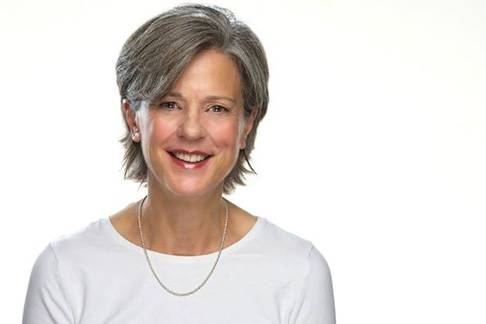
Tracy Cochran has been a student and teacher of meditation and spiritual practice for decades. She is the founder of the Hudson River Sangha, which is now virtual and is open to all. The link for her weekly meditations can be found on her website: tracycochran.org. Tracy has taught mindfulness meditation and mindful writing at the Rubin Museum of Art and the New York Insight Meditation Center. In addition, Tracy has taught mindfulness meditation and mindful writing at schools, corporations, and other venues worldwide. She is also a writer and the editorial director of Parabola, an acclaimed quarterly magazine that seeks to bring timeless spiritual wisdom to the burning questions of the day. Her writings, podcasts, and other details can be found on her website and on parabola.org.
This program is supported in part by the Frederick P. Lenz Foundation for American Buddhism.
Lead support for the Rubin Museum is provided by Bob and Lois Baylis, Barbara Bowman, E. Rhodes and Leona B. Carpenter Foundation, Noah P. Dorsky, Fred Eychaner, Christopher J. Fussner, Agnes Gund, The Robert H. N. Ho Family Foundation Global, the Estate of Lisina M. Hoch, Lilly Endowment, Henry Luce Foundation, The Pierre and Tana Matisse Foundation, Mellon Foundation, Matt and Ann Nimetz, The Randleigh Foundation Trust, Shelley and Donald Rubin, Tiger Baron Foundation, and Ellen Bayard Weedon Foundation.
General operating support of the Rubin Museum of Art is provided by the Milton and Sally Avery Arts Foundation, Daphne Hoch Cunningham and John Cunningham, Anne E. Delaney, Dalio Philanthropies, Janet Gardner, Dan Gimbel of NEPC, Inc., The Prospect Hill Foundation, Basha Rubin and Scott Grinsell, Namita and Arun Saraf, Linda Schejola, Eric and Alexandra Schoenberg, Eileen Caulfield Schwab, Jesse Smith and Annice Kenan, Tsherin Sherpa, Tong-Tong Zhu and Jianing Liu, with generous donations from the Museum’s Board of Trustees, individual donors and members, and corporate and foundation supporters.
This program is supported, in part, by public funds from the New York City Department of Cultural Affairs, in partnership with the City Council.
The Rubin Museum’s programs are made possible by the New York State Council on the Arts with the support of the Office of Governor Kathy Hochul and the New York State Legislature.








Join us for a lively discussion on the Rubin stage with Paul Miller (DJ Spooky) and Scott Snibbe about Snibbe’s new book, How to Train a Happy Mind. Scott and Paul will talk honestly about when they’ve been at their best and worst in lives filled with art, music, and relationships—and how thousand-year-old Indo-Tibetan analytical meditation techniques are still relevant today for achieving a happy mind, fulfilling relationships, and a better world. Premium tickets include a copy of the book. A book signing will follow the program.
About the Book
Featuring a foreword by His Holiness the Dalai Lama, How to Train a Happy Mind introduces an eight-step meditation program inspired by the ancient Buddhist path to enlightenment yet firmly grounded in modern science. Breaking the path down into concise steps and written in a relatable tone with plenty of references to popular culture, the book helps us understand how our mind can be both the source of our problems and the source of our solutions.
About the Speakers
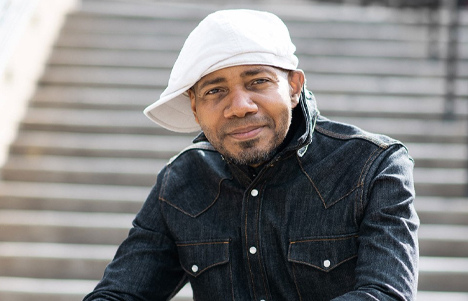
Paul Miller (aka DJ Spooky), a graduate of Bowdoin College, is a writer, artist, and musician who lives and works in NYC. His award-winning first book Rhythm Science was published by MIT Press in 2005, followed by Sound Unbound in 2008, and The Book of Ice in 2011. Miller’s work has been exhibited at museums and biennials throughout the world. He has performed in a wide variety of venues, including Tate Modern, the Guggenheim Museum, and the Herod Atticus Theater at the Acropolis, and has collaborated with a wide variety of artists from Chuck D to Yoko Ono. The iPhone app he developed with Music Soft Arts has been downloaded several million times. He has been a regular presence at the Rubin and was last on stage in the Karma series in 2018. www.djspooky.com
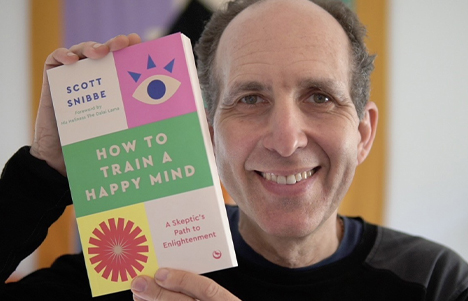
Scott Snibbe is a new media artist and the executive director of A Skeptic’s Path to Enlightenment, and host of its popular meditation podcast. A pioneer of interactive art, Snibbe’s installations have been incorporated into concert tours, museums, and airports, and he has collaborated with musicians and filmmakers, including Björk, Philip Glass, Beck, and James Cameron. His work can be found in the collections of MoMA, the Whitney Museum of American Art, and other institutions. As a 25-year student of Tibetan Buddhism, Snibbe’s teachers include Ven. Sangye Khadro, Lama Zopa Rinpoche, Gyumed Khensur Rinpoche Lobsang Jampa, and His Holiness the Dalai Lama. Through their inspiration, he leads meditation classes and retreats worldwide that infuse the pure lineage of the great Buddhist masters with science, humor, and the realities of the modern world. This is his first appearance at the Rubin.
Lead support for the Rubin Museum is provided by Bob and Lois Baylis, Barbara Bowman, E. Rhodes and Leona B. Carpenter Foundation, Noah P. Dorsky, Fred Eychaner, Christopher J. Fussner, Agnes Gund, The Robert H. N. Ho Family Foundation Global, the Estate of Lisina M. Hoch, Lilly Endowment, Henry Luce Foundation, The Pierre and Tana Matisse Foundation, Mellon Foundation, Matt and Ann Nimetz, The Randleigh Foundation Trust, Shelley and Donald Rubin, Tiger Baron Foundation, and Ellen Bayard Weedon Foundation.
General operating support of the Rubin Museum of Art is provided by the Milton and Sally Avery Arts Foundation, Daphne Hoch Cunningham and John Cunningham, Anne E. Delaney, Dalio Philanthropies, Janet Gardner, Dan Gimbel of NEPC, Inc., The Prospect Hill Foundation, Basha Rubin and Scott Grinsell, Namita and Arun Saraf, Linda Schejola, Eric and Alexandra Schoenberg, Eileen Caulfield Schwab, Jesse Smith and Annice Kenan, Tsherin Sherpa, Tong-Tong Zhu and Jianing Liu, with generous donations from the Museum’s Board of Trustees, individual donors and members, and corporate and foundation supporters.
This program is supported, in part, by public funds from the New York City Department of Cultural Affairs, in partnership with the City Council.
The Rubin Museum’s programs are made possible by the New York State Council on the Arts with the support of the Office of Governor Kathy Hochul and the New York State Legislature.








